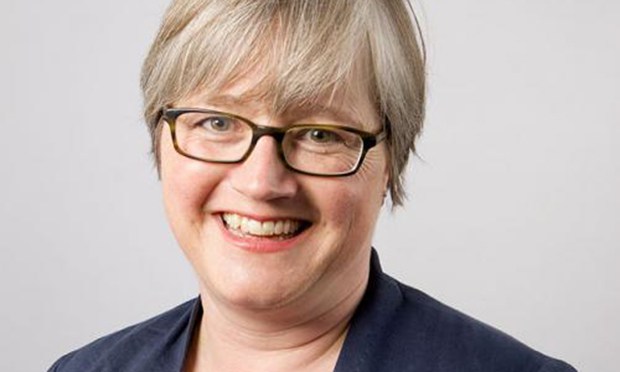Child strip-searches: More incidents come to light after police ‘data error’

Green London Assembly Member Caroline Russell. Photograph: City Hall
New concerns have been raised about the strip-searching of children by the Metropolitan Police after the force revealed it had mistakenly underreported its use of the tactic.
Met Commissioner Sir Mark Rowley has said officers have “overused” and “misused” the power in the past, but are now focused on being “much more careful about only using it when it’s necessary”.
The issue has been repeatedly raised by Green London Assembly Member Caroline Russell, who has called for more transparency on the number of searches, where they are being carried out, and whether an appropriate adult is present.
In a written question lodged with City Hall in July 2022, Russell asked for location data in relation to what the Met had said was a total of 99 strip-searches of children carried out in 2021.
In an answer issued last month, Russell was told that the Met “has established” that the figure of 99 searches was “incorrect”, which they said was due to a “data transmission error”.
They clarified that the figure was in fact 271, including two searches logged in error but still captured in the data.
Of that number, 57 per cent of searches were carried out at police stations, 21 per cent at home addresses, and 21 per cent at “other” locations.
Russell said: “Almost a year after I asked for Met data on the strip-searching of children, the Met cannot even provide the location of a fifth of those that took place. This data from 2021 had not been recorded properly, leading to almost a year of delay in answering my question on locations of strip-searches and the correction of a previous answer, which now shows three times more children were being strip-searched by police.”
She added: “Each strip-search means another child traumatised by an interaction with the Met.
“The Met must stop the use of this invasive policing tactic to protect young people from the deep distress of intimate searches and guarantee proper transparency about its deployment in the meantime.”
Speaking at a City Hall meeting, Kenny Bowie – a director at the Mayor’s Office for Policing and Crime – said the Met’s data systems needed improvement and that he was “pretty horrified” by the data error.
A Met spokesman said the cause of the error “has now been recognised and all analysts who compile data are aware of this”.
London Mayor Sadiq Khan has said there is a place for child strip-searches in “very exceptional circumstances”.
The issue came to the fore following the Child Q scandal, which saw a teenage girl in Hackney strip-searched at school without an appropriate adult present and without her family being informed.
Dame Rachel de Souza, the Children’s Commissioner for England, recently uncovered “systemic problems with transparency, scrutiny and non-compliance with guidelines when children were being strip-searched under stop and search powers”.
The Met spokesman said the force has made several improvements to the way it carries out the tactic: “More Thorough Searches that expose Intimate Parts (MTIP) form 1.3 per cent of all searches and the Metropolitan Police Service recognises that it is the most intrusive tactic involved in stop-and-search and of concern to our communities.
“Criminality is detected in 53 per cent of MTIP searches and that figures rises to 60 per cent for under-18s.
“We have ensured our officers and staff have a refreshed understanding of the policy for conducting a ‘further search’, particularly around the requirement for an appropriate adult to be present.
“We have also given officers advice around dealing with schools, ensuring that children are treated as children and considering safeguarding for those under 18. We have reviewed the policy for ‘more thorough searches’ for those aged under 18 to assure ourselves the policy is appropriate and recognises that a child in these circumstances may well be a vulnerable victim of exploitation by others involved in gangs, County Lines and drug-dealing, or at risk of self-harm.
“An inspector must now give authority prior to the search taking place to ensure appropriate oversight.
“We will also ensure a Merlin report is submitted for all such searches, to ensure safeguarding the child is the priority.
“We have made significant steps in the training of our officers, consulting with our communities and ensuring the correct oversight of stop and search, but we are not complacent, we know there is more to be done and we will listen and act on what we hear.”
